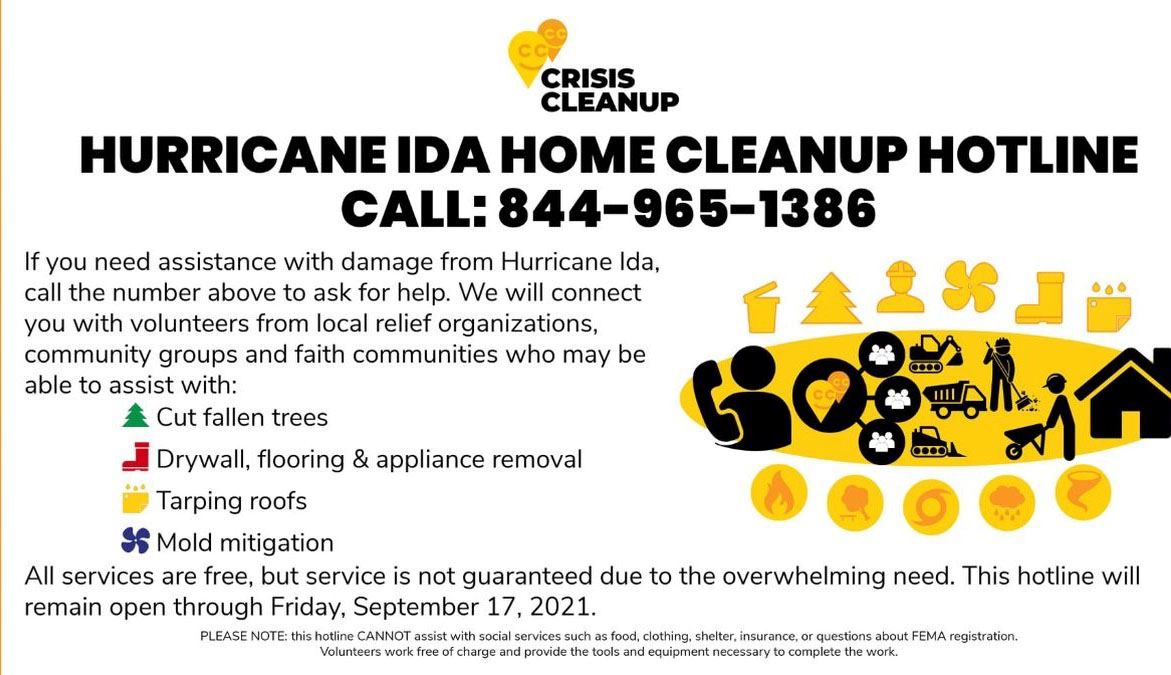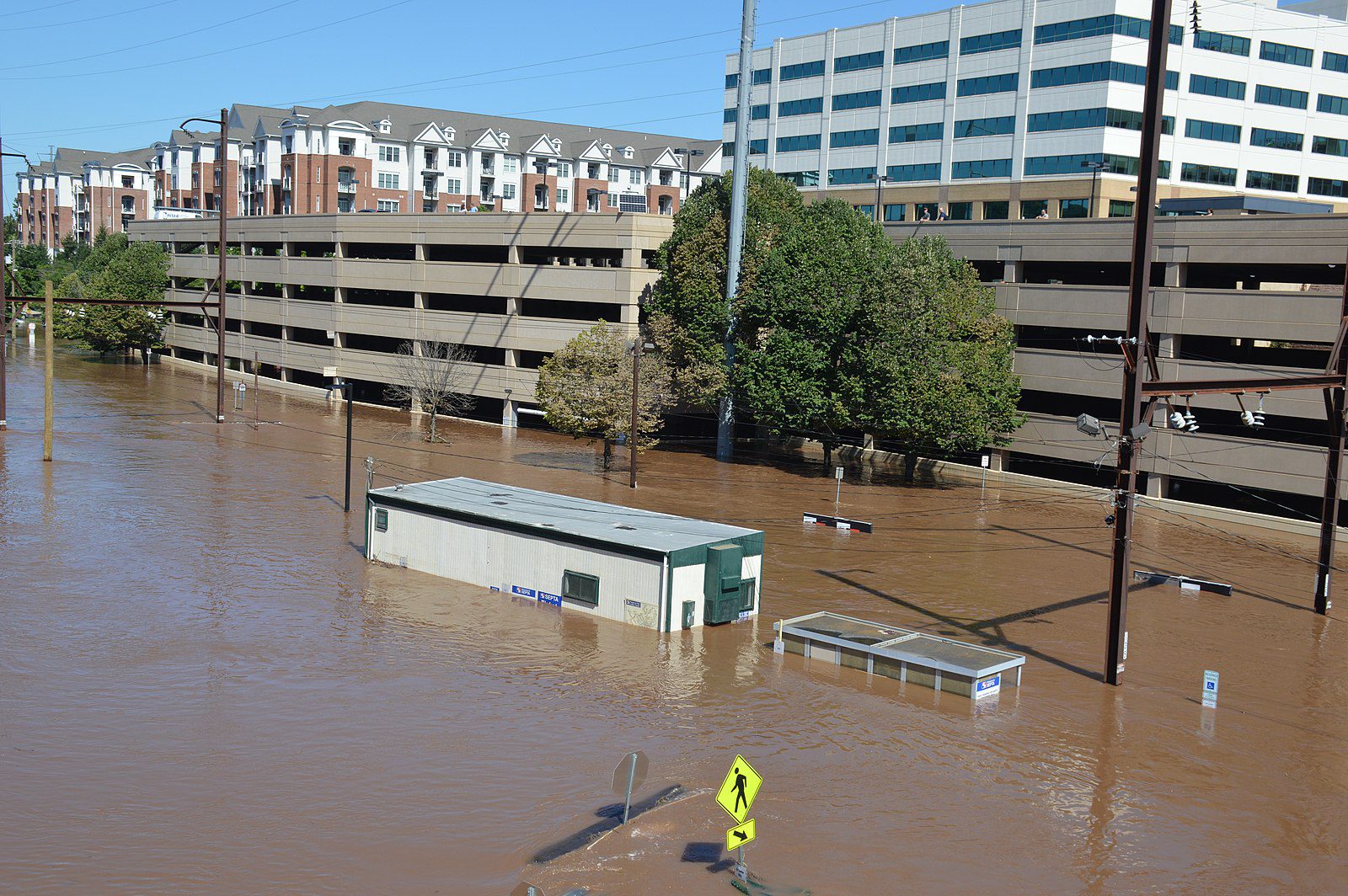Chester County Hurricane Ida Recovery Resource Center
- Dates: September 8th and 9th
- Time: Noon – 7pm
- Location: United Sports Training Center, 1426 Marshallton Thorndale Rd, Downingtown, PA 19335
If you have property damage, fill out this damage risk assessment form so that municipalities are able to document loss for Federal Aid. If you would like to make donations to support effort, please visit www.chesco.org/ida. Lord’s Pantry of Downingtown, United Way of Chester County, Mission Community Church and so many more helpers have been on site to support the recovery. For more information from the county, click here. As more developments arise, they will be shared on our website and on the chamber social media outlets.

Downingtown Borough Updates
9/5/21 Update
PECO Electric Restoration Information: Borough Residents: If your electrical panel was submersed in the recent flood, you will need a licensed electrician to provide any repairs and inspect your electric service to ensure it has been properly dried. You will also need a third party electrical inspector to place a UL sticker on your electrical panel prior to PECO turning your power back on. The Borough does not currently have a third party electrical inspector. On Tuesday, we will look to secure one for the residents who do not have flood insurance. At that time, we will update you on how to contact the electrical inspector. We are still without power and phones at the Borough, but we can post information on the Borough website. Please check back periodically.
9/4/21 Update
Dumpster Update: The Lanchester Landfill is closed until Tuesday, September 7. At that time, the Borough will resume flood debris dumpster rotation and clean-up.
Best Practices For Filing a Claim
FINDING A CONTRACTOR
- Check in with your local homebuilders’ association. You’ll be able to search contractors within your area and put together a list of potentials.
- Get referrals. Ask your friends, family and coworkers who they’ve worked with in the past. They may have a great contractor you haven’t heard of — or know of a few you should stay away from.
- Prepare ahead. The stress of an emergency repair might impact your judgment.
VETTING A CONTRACTOR
- Association check. See if the trade association(s) to which they belong stipulates a code of ethics, minimum hours of satisfactory work and trade exams.
- Search for reviews (good or bad). Check in with your state attorney general’s office and the Better Business Bureau to see if there are any complaints against the contractor. Glance over their public company reviews on social networks or other trusted review sites.
Once you’ve selected a contractor, ask for proper documentation as you move closer to signing off on the job.
PAPERWORK TO SEE FROM YOUR CONTRACTOR
- A copy of their contractor’s license. Licensing and certification requirements vary by state. Check with your local State Consumer Protection Office to view your area’s licensing laws to ensure your contractor is verified and up to date.
- Certificate of insurance. Ask for both general liability, property damage and workers’ compensation coverage and make sure they are up to date.
- A written warranty. You’ll want a warranty for the work they do, the materials they use and those who work for them.
- A list of references. Have they done a project similar to what you are looking to have done?
- A detailed quote. The quote should outline all material used and labor that is expected to be done.
- The contract. Detailed within the contract should be the cost, work to be done, time schedules, guarantees, payment schedules, building permits and other expectations. (Keep this contract for future reference or if any questions arise after the job is complete).
- A receipt. Make sure to get a receipt that is marked “paid in full” when a job is completed and you make the final payment.
- Discuss the need for a lien waiver. This assures you that your general contractor is paying any subcontractors or suppliers they are working with, so you aren’t liable for additional costs down the road.
AS THE JOB COMES TO A CLOSE
- Keep records. Find a place to keep all your paperwork, receipts and change orders. Consider making digital copies as well.
- Snap a photo. Map your progress with weekly photos – or save them for a big before and after reveal.
- Write a review. Good or bad, share details of the work they did, how well they stuck to the timeline and what the finished product looked like. This will help others in their search for hiring a contractor of their own.
Most contractors are trustworthy and are in this line of work for the right reasons. However, some scammers pose as contractors and don’t actually have your best interests in mind. Here are some signs that should make you think twice.
PROCEED WITH CAUTION IF…
- The contractor asks you to pay the entire balance up-front.
- The contractor only accepts cash.
- The contractor avoids giving you a written contract.
- A contractor goes door-to-door – or pops up right after a storm.
- The contractor lists a P.O. Box instead of a street address.
- The contractor uses a vehicle that doesn’t list the business name.
- A contractor offers to pay your insurance deductible.
- A contractor offers to arrange a loan for you.
- You have little to no experience hiring home contractors.
- You’re unable to access the areas of your home that a contractor claims are damaged. Ask a friend or family member or another trusted professional to inspect the area for you.
- You’re not 100% clear about the contract wording. It’s OK to ask questions or have someone else review the contract with you.

